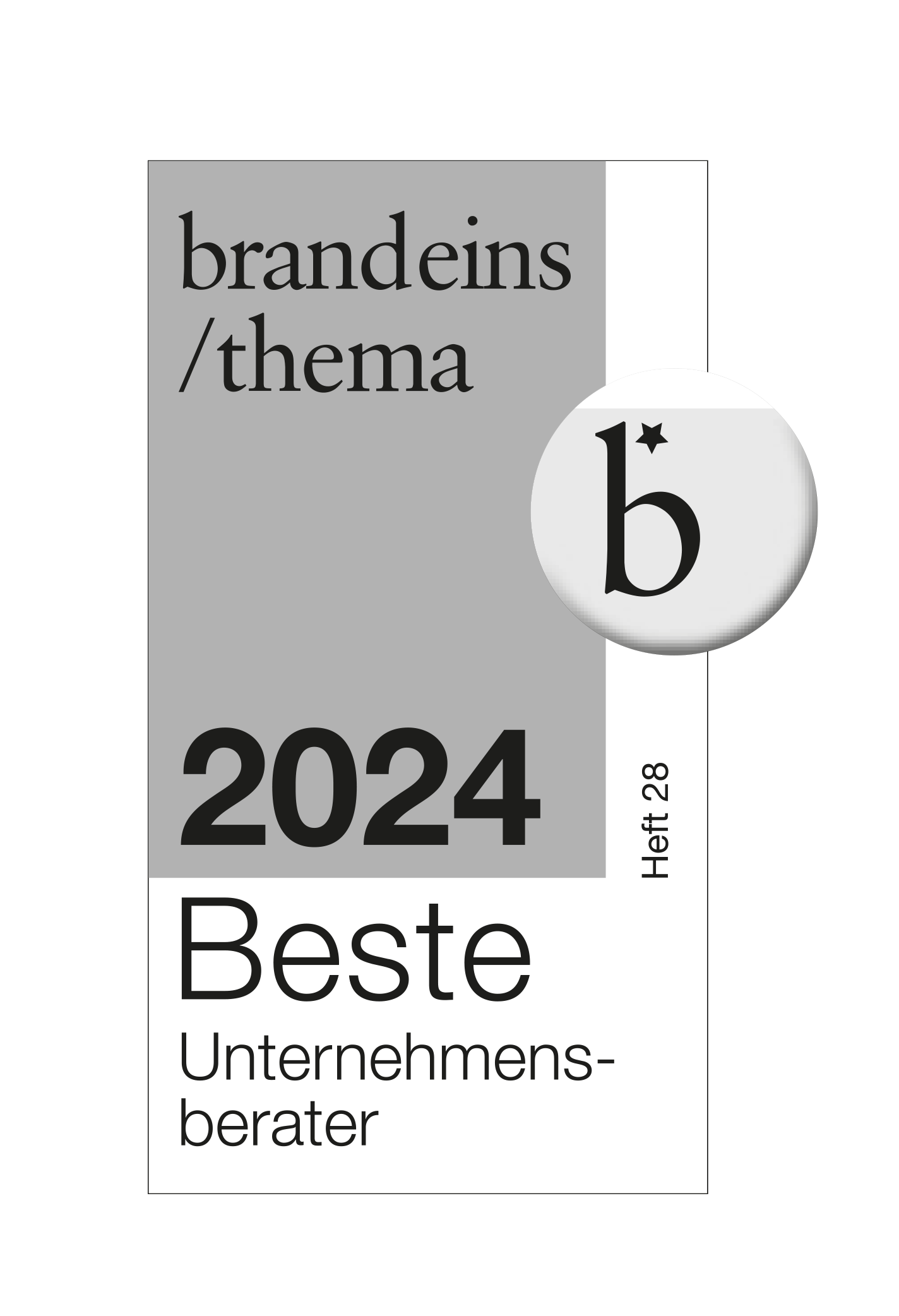In the first and second interview parts of the quantum computing article series, we heard that quantum computing has gained relevance and that applications for quantum computing are already present in companies. Today, let's conclude this interview with the last part of the article series: What to consider in quantum computing, where can I learn from msg's experience?
What challenges does the implementation of quantum computing currently pose for companies and what hurdles need to be overcome?
Let's look again at what we said at the beginning: Quantum computing works in a fundamentally different way than the algorithms in widespread use today. This brings challenges on several levels for those who engage with this technology: How do I identify the problems in my field of activity or even in my company for which a solution using quantum computing makes sense in principle? How do I find the right solution approach, and how do I then create the software for the quantum computer on this basis?
About the interview series “Quantum Computing”
Eva Ess, Project Manager in the Automotive & Manufacturing sector at msg, asks Dr. Thomas Klemm, expert in quantum computing, some fascinating questions: How does he assess the potential of this novel computing technology? In the msg group, Thomas Klemm is pursuing this topic and advises companies on possible applications of quantum computing.
One after the other: How do our customers find “meaningful” problems?
Well, we had already talked about the problems for which quantum computing could be suitable in principle: Hard-to-compute tasks that have either many variables (and a correspondingly large solution range) or many dependencies between the individual variables, simulation of complex systems, or extensive tasks with Boolean rules. Many combinatorial problems fall into this category: Route planning, variant calculations, to name just two.
So the first step for a company is to identify the tasks in which conventional computing methods reach their limits. You can recognize this limit when you look for calculations that can only be approximated, that run overnight or that are only ever used in small areas. The hitch, calculations that no one has programmed because it's too complex, are not to be found.
In fact, you should not lose sight of the added value that results from solving the problem for the company.
There are no higher level programming languages for quantum computing as of today that would allow easy mapping of the problem to the source code.
What do I do with my problem then? I imagine that at first it is difficult to see how to solve the problem with a quantum computer.
Exactly. The next step is to work out the core problem from the functional problem and put it into a form that it can be computed using quantum physics. There are no higher level programming languages for quantum computing as of today that would allow easy mapping of the problem to the source code. This is due not only to the “different” computing of quantum computers, but also to the fact that we tend to deal with “hard” problems. At the same time, at this point we have to go in search of a quantum algorithm that could be considered for solving the problem. In the first interview part of the quantum computing article series on the “Digital Transformation” and the second interview part on the “Application Areas of Supercomputers”, we had talked about the BMW Challenge – there, for example, we had decided to use a Grover-like search algorithm to find the right solutions in the Boolean rule set, which is composed of the buildability rules of the vehicles on the one hand and the test conditions to be met (in the pre-series tests) on the other.
That sounds challenging. And then we have the quantum computer execute this algorithm?
Now comes the high art of quantum software engineering. Not only do we have to create our functional problem in the appropriate code, but at the same time we have to deal with the real limitations of quantum computers. On the one hand, there is the need for error correction – remember that quantum computing basically means running highly complex physical experiments and is therefore not deterministic. On the other hand, the number of qubits available today often does not yet allow to map a problem directly to an appropriate formulation in the sense of quantum computing. For this reason, for example – to return to the BMW challenge from the first and second interview part one last time, we have chosen a hybrid approach that works on the basis of a "traditional" SAT solver (i.e., an algorithm that finds solutions for Boolean problems) and switches to the corresponding quantum algorithm to solve a subproblem. So, a conventional algorithm chops the problem into large enough pieces that each of those pieces can be computed using today's QC world. Such hybrid algorithms can then grow along with the maturity of QC hardware, until in a few years, the full problem can be solved by QC.
We should also mention another challenge: Calculations of a quantum computer cannot be tested and debugged as easily as we are used to in our current software development environments. This again has fundamental reasons, which are (you remember the first part of the interview), that each measurement destroys the so-called coherence of the overall state of the qubits, so we cannot move step by step through the algorithm as in our programs today. We can find ways to do this, but it's one of the areas that still needs research.
What does that mean for companies that want to use quantum computing? There are a number of hurdles to overcome before the application can be implemented.
There's no denying that – but it's not rocket science either.
Companies need to address two aspects:
1. On the one hand, gain experience. There are now several commercial suppliers and open-source projects that make it possible to test quantum software with quantum computing simulators or with real quantum computers. Such platforms are readily available, and we also use them to share experiences with customers.
2. On the other hand: Get advice and actively seek discussion. Depending on where the company stands, it needs specific knowledge and partners to set the right course. Be it to sift through and evaluate functional problems in the company, to analyze potential that could arise from quantum computing, to create the necessary organizational and IT strategic conditions in the company, or to move towards implementation.
My impression is that we will see the first relevant applications here in the next 1-2 years.
Are we that far along already? When will we see the first quantum applications?
Some smaller applications such as the random generators mentioned already exist, and a special branch of quantum computing, “adiabatic quantum computing”, is already finding practical applications. What we have been talking about here, so-called “universal quantum computing”, which also brings the performance advantages I mentioned, is currently being intensively researched and developed. My impression is that we will see the first relevant applications here in the next 1-2 years; market research institutes see an economically significant contribution to the IT business as early as five years from now. For managers, this may sound like a long time, but due to the current, fast-paced development and the pronounced, very specific know-how requirements, companies should think early on about the extent to which the topic of “quantum computing” could be relevant for them, build up the necessary basic understanding and prepare themselves for the use of quantum computing, if necessary, with the help of a suitable partner.
Quantum technology will change our everyday lives – but how can companies currently address the topic of quantum computing and bring it to market? Who brings the right expertise to the table?
Whether quantum computing will change the everyday life of each and every one of us is something we cannot yet say. But I’m convinced that quantum computing could bring dramatic changes, especially in areas that are currently reserved for highly qualified workers, or that it will open up areas that are not yet within the reach of our computing capabilities – we have discussed examples of this. And yes, you mention it, companies need people with the necessary expertise. And they need expertise in a much broader range than in “traditional” IT topics, especially since the field is still undergoing rapid development.
When faced with these challenges, interested companies should call in partners like msg that have the necessary background knowledge in computer science, physics and mathematics and can pass this knowledge on. Priceless is also practical experience in programming quantum software and interpreting its results. This is especially important when it is necessary to develop hybrid approaches that, starting from today's still very limited possibilities, grow along with hardware development. Traditional and quantum methods are then combined in an appropriate way. And finally, our deep understanding of the customer's business processes helps us a great deal in analyzing the business problems for “quantum suitability”.
msg’s expertise on the topic of “quantum computing” in the automotive industry:
- We can. Together with our customers, we solve the challenges and prepare them to tap the enormous potential of quantum computing.
- We actively impart knowledge on quantum computing.
- We have experience in writing quantum algorithms for solving Boolean (SAT) problems, including participation in the BMW Quantum Computing Challenge 2021.
In these challenges, msg stands by its customers. We possess the necessary background knowledge and are happy to pass it on: in presentations, university lectures or online courses. We have already been able to gain initial practical experience in programming quantum computers and combine this with our traditionally very strong functional industry expertise. For example, we recently developed a solution idea for BMW to optimize the test vehicle fleet during the start of series production (more information on this: in the first and second interview part). Our hybrid approach combines a traditional SAT solver with a quantum algorithm and is characterized by scalability, depending on the available quantum computing capacity.
Quantum computing is an extremely promising field that is undergoing rapid development and could gradually reach series maturity within the next few years. At msg, we are ready for this next big step of the digital transformation to support our customers with algorithmic and IT strategic consulting, design and implementation, as well as integration and operation of quantum applications.
It's great how msg builds practical experience, shares this knowledge and thus supports the customer. Thanks for the insight into the challenges companies face when using quantum computing and how they can overcome them.
Interview with
Key Facts by Stephan Melzer, Executive Project Manager, msg
- When we're dealing with combinatorics, relating a lot of this to that, then it becomes easy for quantum computing. Simulation, optimization are the buzzwords to remember here when you go looking in your own company.
- Quantum computing and neural networks are a brilliant combination. Where AI is already on everyone's lips, QC will soon join it.


